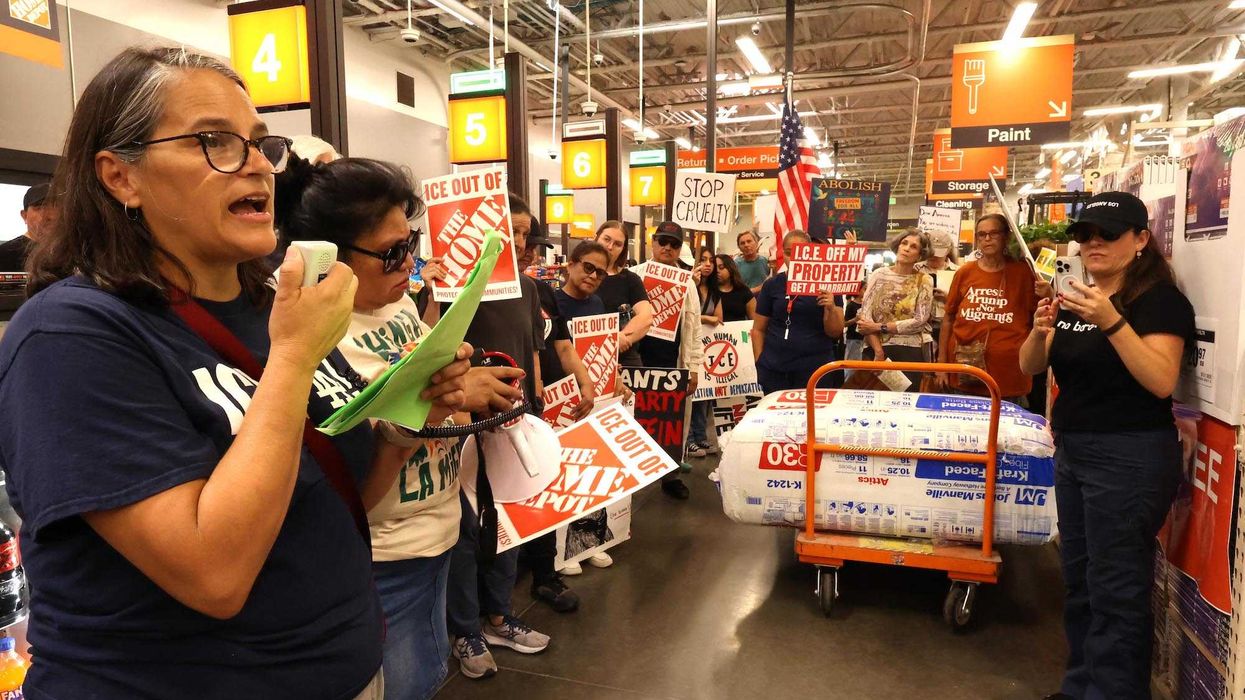Despite a nominal dip in the unemployment rate for September, the number of young veterans returning from Afghanistan and Iraq reached 10.1 percent, up nominally from 10 percent in August.
The pattern has prompted U.S. employers have committed to hiring more veterans, including the companies as big as Walmart – pledged to hire 100,000 veterans in the next five years -- and several lesser known companies making large efforts, according to the American Legion.
 Dustin Williams kisses his daughter Aubrey, 1, on the cheek after being dismissed from duty during the ceremony for Michigan Army National Guard 1461st Transportation Company returning home Thursday, May 30, 2013 at Lumen Christi High School in Jackson, Mich. (AP)
Dustin Williams kisses his daughter Aubrey, 1, on the cheek after being dismissed from duty during the ceremony for Michigan Army National Guard 1461st Transportation Company returning home Thursday, May 30, 2013 at Lumen Christi High School in Jackson, Mich. (AP)
American Legion spokesman Craig Roberts told TheBlaze that the following companies have been “heavy hitters” when it comes to stepping up to hire more veterans.
The companies are listed in alphabetical order.
1. Coca-Cola hired 800 veterans in 2013, according to the American Legion, on top of the 5,500 already working at the company throughout the United States. The soda giant is is part of the JP Morgan partnership to hire 100,000 by 2020.
2. General Electric, among the oldest and largest companies in the United States, began the “Get Skills to Work” program in October 2012, to match military veterans skills with manufacturing jobs. The GSTW program is in conjunction with Alcoa, Boeing, Lockhead Martin and the Manufacturing Institute (a non-profit affiliate of the National Association of Manufacturers). Currently, GE employs 10,000 military veterans, according to the American Legion, and has set a goal of adding 1,000 veterans per year for the next five year to its payroll. The goal of GSTW is to send 100,000 former service members into the manufacturing sector by 2015, which GE says has more than 600,000 jobs to fill. The GSTW website contains a candidate assessment and information about translating skills learned in the military to civilian jobs.
3. JPMorgan Chase, the financial giant began the “100,000 Jobs Mission,” a program to garner other companies to pledge to collectively hire 100,000 veterans by 2020. The program, which began in March 2011, now has 116 participating companies. The goal has almost been reached, as the website says 92,869 veterans have been hired as a result of the initiative.
“We hold no group in higher regard than veterans,” Maureen Casey, managing director of military and veterans affairs at JPMorgan Chase, told TheBlaze. “When we hire them, we bring tremendous value to our business. Veterans have the skills we seek in our top employees.”
4. Nexstar Network, a Minnesota-based member-owned business education and consultant organization for building contractors, established a “Troops to Trades: Military Professional Training Program” through its non-profit arm the Nextstar Legacy Foundation in 2012. The training and scholarship program focuses primarily on heating, ventilation, and air conditioning (HVAC). By the end of 2013, Nexstar plans to train 40 veterans in sales, management and customer service as well as HVAC. The scholarships through the program cover the cost of travel and the coursework itself.
5. Sallie Mae, the government sponsored enterprise company specializing in student loans offers in house training for veterans in several areas, such as customer service, marketing, legal and compliance work, according to the American Legion. Sallie Mae is targeting veterans with “soft skills” that are not necessarily tied directly to the military occupations.
6. SAP is not a household name as much as some of the other companies on the list, but the Pennsylvania firm is a large information technology firm with 230,000 clients nationally, providing software applications for other companies and organizations. According to SAP, 74 percent of the world's GDP flows through SAP transactions. SAP started the "Veterans to Work" initiative provides veterans with training, scholarships and certification programs for IT jobs. The veterans who complete this training will gain jobs at both SAP and be referred to the company's clients.
7. SharpDecisions, a New York technology firm, created the VETS program to assist veterans entering the quality assurance, software testing and data mining fields, according to the American Legion. The initiative is funded by a $250,00 pledge from the company to bring 200 veterans to the company. The plan would be to hire veterans in teams of 15 to 20.
8. UPS, the delivery and packaging giant, pledged to hire 25,000 veterans over the next five years, according to the American Legion. That would be on top of about 24,000 already employed nationally by the company. The company has 250 UPS stores operated by veterans. Also of significance to the larger problem facing post-9/11 veterans, UPS was awarded the Secretary of Defense Employer Support Freedom Award for its commitment to hiring employees serving in the National Guard and reserves.
9. Verizon Wireless, began the “Military Skill Matchmaker" and has sponsored and co-sponsored veteran jobs fairs with veteran advocacy groups. As the name would denote, the matchmaker site seeks out skills the veterans have and matches those with jobs Verizon needs to fill.
10. WalMart, the nation's largest retailer, recently pledged to hire 100,000 veterans by 2018. Also, CEO Bill Simon announced earlier this year that the company would hire any veteran who wants a job with the company.
When wars are winding down, a reduced active duty force frequently means an increase reserve force, said Ted Daywait, the CEO and founder of the online veterans jobs board, VetJobs.com.
“Every time you downsize active duty, the number in the guard and reserves goes up not down,” Daywait told TheBlaze. “This country still has to keep up with its treaty commitments and responsibilities.”
Overall veteran unemployment for September was 6.3 percent, lower than the national unemployment rate.
“Companies are stepping up so long as the person is separated from the military," Daywait said. "For the National Guard or Reserve, it's still a problem.”
Another aspect not often consider is locality, said James Schmelling, the managing director of the Institute for Veterans and Military Families at Syracuse University.
“One thing we do know is that 80 percent of veterans either return to the place they came from or stay in the location of their last deployment,” Schmelling told TheBlaze. “Only 20 percent make decisions on education and employment opportunities in deciding where to go.”
–
[related]

 Dustin Williams kisses his daughter Aubrey, 1, on the cheek after being dismissed from duty during the ceremony for Michigan Army National Guard 1461st Transportation Company returning home Thursday, May 30, 2013 at Lumen Christi High School in Jackson, Mich. (AP)
Dustin Williams kisses his daughter Aubrey, 1, on the cheek after being dismissed from duty during the ceremony for Michigan Army National Guard 1461st Transportation Company returning home Thursday, May 30, 2013 at Lumen Christi High School in Jackson, Mich. (AP)





